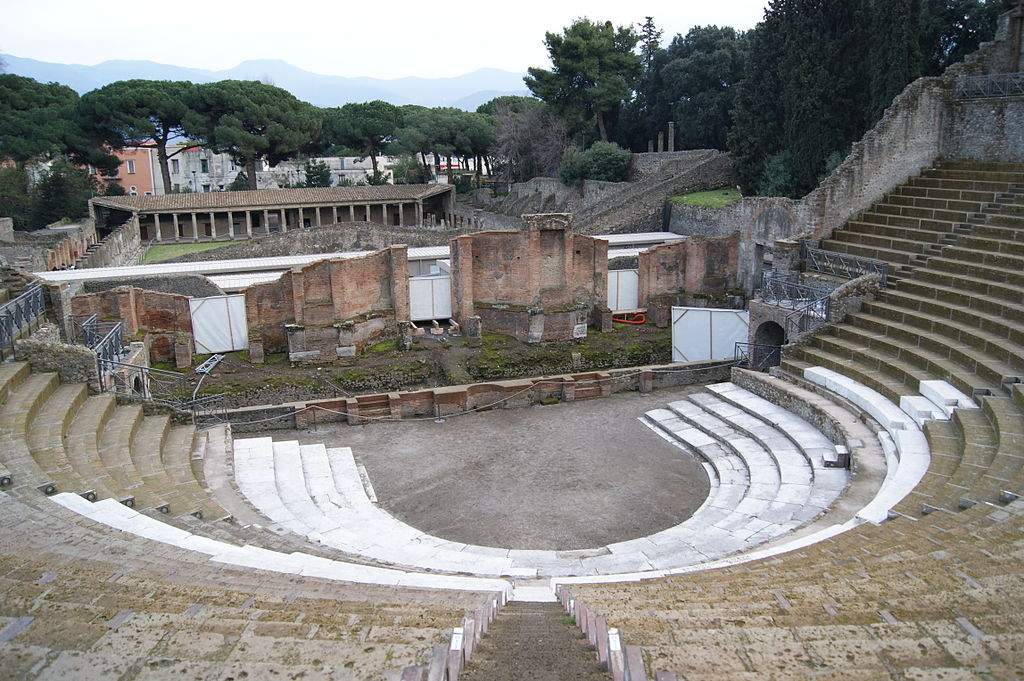A ruling that will cause debate, that of the Central Jurisdictional Appellate Section III of the Court of Auditors, which condemned the former extraordinary commissioner of the Archaeological Park of Pompeii, Marcello Fiori, an executive who received the appointment in 2008 by then-Minister Sandro Bondi (before that he had worked at Acea and the Civil Protection Department), held until July 2010. His experience in Pompeii had ended with a restoration of the Teatro Grande, which, however, already at the time had aroused quite a bit of criticism: Antonio Irlando, president of the Cultural Heritage Observatory (a private organization that deals with cultural heritage), even then wrote to Minister Bondi to ask him to stop the restoration, which he called a “havoc.” “The intervention on the theater,” Irlando stated in his letter, “is a truly inconceivable havoc wrought within the archaeological monument among the most significant in the world,” since, according to him, it would have made use of “modern materials” going so far as to distort even portions of the monument with constructions from scratch. A restoration that had also led to a significant increase in costs: 5,778,939 euros was the final cost, as opposed to the 449,882 euros plus vat originally budgeted.
Similar doubts had already been expressed in June 2010 by a Corriere della Sera report (which today, nine years later, carries excerpts of the ruling and a summary of the story): “the pneumatic hammers,” Alessandra Arachi wrote then, “produce those unequivocal piercing vibrations. But then all you have to do is climb over a small fence (very easy, there´s no janitor around even if you pay him gold) and yes, it becomes complicated to believe your own eyes. Jackhammers become almost a detail in the terrible construction site of the Great Theater of Pompeii, invaded by concrete mixers, bob karts, bulldozers, cables, sanders and what have you. In the apartment building below your house, they would be more cautious about doing the work. And instead here, the stuff of archaeology from the second century B.C., the workers are moving among the ruins like elephants inside a glass house, and looking for a person in charge of the whole shebang you only find surveyor Pasquale, so at least it happened to us yesterday when the hammers and bulldozers were in full action under the eyes of astonished tourists.”
The Court of Auditors found that the objective of the intervention was not so much to restore the Teatro Grande as to put on a show with a restoration-show: the increase in expenses, in fact, according to the judges find “a logical explanation only in the desire to close the commissarial experience, a few days from now, in a way that - it has to be said - was spectacular.” The ruling (and this is the part that will be discussed and probably remain etched in the annals of protection) also explains that “the enhancement of cultural property cannot be equated with the mere ’exploitation’ of the same for purposes of an entrepreneurial-commercial nature, nor must it in any way alter the physical characteristics of the asset or reduce its public usability, given that the cultural asset, and especially the archaeological asset that crystallizes our history, always remains the public asset par excellence.” Moreover, it is noted that Fiori dealt mainly with the “technical specifications for the stage set-up” without paying too much attention to the commitment “to verify the compatibility of the initiative with the needs of protection of the archaeological asset.” Fiori, the verdict goes on to say, “passed over everything, over the rules established by the Civil Protection ordinances themselves, over procurement regulations, over the Cultural Heritage Code, over the powers and concerns of the General Commission for Policy and Coordination, over the general principles that in any case preside over the use of public resources even under a derogatory regime, over prudence.” Hence, the verdict, by which the Court of Auditors condemns the former commissioner to pay 400,000 euros.
In the photo, the Great Theater of Pompeii. Ph. Credit
 |
| Inflated restorations to make a spectacle: Court of Auditors orders former Pompeii commissioner to pay 400,000 euros |
Warning: the translation into English of the original Italian article was created using automatic tools. We undertake to review all articles, but we do not guarantee the total absence of inaccuracies in the translation due to the program. You can find the original by clicking on the ITA button. If you find any mistake,please contact us.